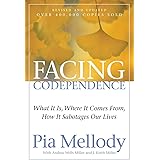Have you ever wondered what happens inside a sex addiction clinic, or how these specialized programs aim to help individuals regain control over their lives? As the insightful video above explains, entering a sex addiction clinic marks the beginning of an intensive and often life-changing journey.
These dedicated facilities offer structured environments designed to help people manage compulsive sexual behaviors and develop healthier coping mechanisms. It involves a profound commitment to personal growth and understanding the roots of addictive patterns.
Understanding Life Inside a Sex Addiction Clinic
Sex addiction clinics provide a safe and supportive space for individuals grappling with compulsive sexual behaviors. These programs are not about judgment but about offering tools and strategies for a healthier future. The primary goal is to empower residents to take charge of their actions and develop sustainable well-being.
Programs typically run for a set duration, often ranging from 30 days to six weeks, as mentioned in the video. This structured timeframe allows for deep immersion into therapeutic practices and a necessary break from external triggers and daily stressors.
The Initial Commitment: Relinquishing Control
Upon entering a sex addiction clinic, participants immediately surrender a significant degree of personal control to the facility’s team. This initial act of trust is fundamental to the therapeutic process. It helps individuals shift from self-defeating behaviors to a path guided by expert support.
The clinical team comprises therapists, counselors, and support staff, all working together to create a cohesive treatment plan. This collective effort ensures that individuals receive comprehensive care and consistent guidance throughout their stay in the program.
Banning Triggers and Embracing Abstinence
A crucial element of treatment in a sex addiction clinic is the strict removal of all sexual activity and potential triggers. This creates an environment where individuals can focus purely on recovery without external distractions or temptations. The aim is to break the cycle of impulsive reactions.
Participants typically make a personal vow of 90-day abstinence from sexual activity. While facilities cannot physically enforce this vow, its power lies in the individual’s commitment to self-responsibility. This period allows for a crucial reset, helping individuals understand and reframe their relationship with sex.
Personal Responsibility: The Core of Recovery
Ultimately, the success of any sex addiction clinic program hinges on the individual’s willingness to own their behaviors. Taking responsibility for one’s sexuality and sexual expression is a cornerstone of recovery. This includes acknowledging past actions and understanding their consequences.
The clinical environment fosters a culture of accountability, encouraging deep self-reflection and honesty. Learning to connect actions with outcomes is vital for building a new foundation of healthy choices. This internal shift is more powerful than any external enforcement.
Addressing Co-occurring Addictions and Holistic Health
Many individuals struggling with sex addiction often face other addictive behaviors simultaneously. The video highlights that one addiction can frequently signal the presence of a second. This reality necessitates a comprehensive approach to treatment, looking beyond the primary addiction.
Sex addiction clinics often require participants to avoid all potentially addictive substances, including cigarettes and alcohol. This holistic approach recognizes the interconnectedness of various addictive tendencies. Treating the whole person, not just one aspect of their behavior, ensures more robust and lasting recovery outcomes.
Understanding the “Addiction Transfer” Phenomenon
The concept of “addiction transfer” is significant in recovery settings. If individuals only address one addiction, they might simply replace it with another if underlying issues remain unaddressed. For instance, stopping compulsive sexual behavior without dealing with core emotional pain could lead to increased reliance on alcohol or gambling.
Therefore, therapy at these clinics focuses on identifying the root causes of addiction, rather than just managing symptoms. Addressing anxiety, trauma, depression, or attachment issues can prevent the simple swapping of one unhealthy coping mechanism for another.
Beyond Abstinence: Cultivating Healthy Sexual Expression
It’s a common misconception that sex addiction clinics aim for lifelong sexual abstinence. The reality is quite different; the true goal is to help individuals cultivate healthy sexual expression and relationships. This means learning to engage in sex in a way that is consensual, respectful, and free from compulsion.
Programs equip individuals with the skills to recognize and manage triggers effectively. They learn to identify the emotional and psychological precursors to unhealthy sexual behaviors. This self-awareness is key to preventing relapses and maintaining long-term wellness.
Developing Emotional Regulation and Coping Skills
A significant part of treatment involves developing stronger emotional regulation skills. Many individuals use compulsive sexual behavior to numb difficult feelings or escape from stress. Therapy teaches healthier ways to process emotions, such as mindfulness, communication, and healthy recreational activities.
Learning how to cope with life’s challenges without resorting to addictive patterns is a fundamental outcome of these programs. This includes building resilience, improving communication skills, and establishing supportive social networks outside the clinic.
The Journey of Self-Discovery and Facing Challenges
While the initial “high” or ego trip of compulsive behaviors might feel good in the moment, the long-term reality is often one of pain and consequence. The therapeutic journey within a sex addiction clinic involves facing oneself honestly and deeply. This introspection can be challenging and emotionally taxing.
Therapists guide individuals through this difficult process, helping them explore underlying traumas, insecurities, and unmet needs that fuel addictive patterns. It is an intensive period of self-discovery that requires immense courage and commitment.
Building a Foundation for Lasting Change
The work done inside a sex addiction clinic lays the groundwork for a life of sustained recovery. It’s about building a robust internal framework that supports healthy choices and meaningful connections. This process involves not just stopping behaviors but also transforming one’s entire relationship with themselves and others.
Individuals leave these programs with a newfound understanding of their triggers, effective coping strategies, and a clearer vision for healthy sexual expression. The journey continues long after leaving the clinic, with ongoing support groups and therapy often recommended to reinforce the lessons learned during sex addiction treatment.
Unpacking Sex Addiction Treatment: Your Questions Answered
What is a sex addiction clinic?
A sex addiction clinic is a specialized facility that provides a structured environment to help individuals manage compulsive sexual behaviors and develop healthier coping mechanisms.
How long do programs at a sex addiction clinic typically last?
Programs at these clinics usually run for a set duration, often ranging from 30 days to six weeks, allowing for intensive therapy and a break from daily stressors.
What is the primary goal of treatment in a sex addiction clinic?
The primary goal is to empower individuals to take charge of their actions, develop sustainable well-being, and cultivate healthy sexual expression.
Do individuals in a sex addiction clinic have to stop all sexual activity?
Yes, a crucial part of treatment often involves a personal vow of 90-day abstinence from sexual activity to help break cycles and reframe one’s relationship with sex.
Do sex addiction clinics address other problems besides sex addiction?
Yes, these clinics often take a holistic approach, recognizing that individuals may have co-occurring addictions or underlying issues like anxiety or trauma.











